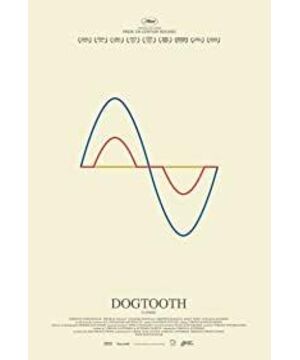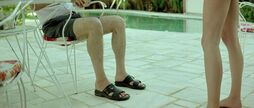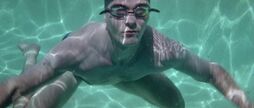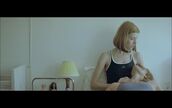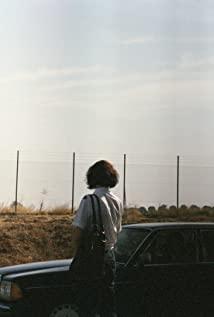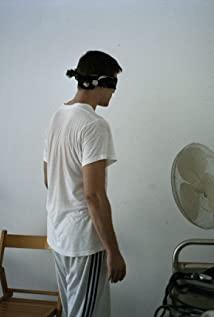The text is transferred from: Marionette Interpretation of the Movie "Dog Tooth"--Wang Mingyu--Jiangsu Normal University
"Dog Tooth" is a low-cost, low-investment work, but it has become the focus of discussion in the film industry. Today's film market seems to favor low-budget films. These films pay more attention to storytelling, bold ideas and distinctive styles. The success of "Dog Tooth" lies in its spicy deconstruction of the reality of life and the analysis of inner human nature. Although "Dog Tooth" does not break away from the common state of European films reproducing life scenes, the "dystopian" characteristics of this film attract the attention of filmmakers. Another feature of the film is that it does not have any soundtrack, the story location is concentrated in a remote villa with a fence, and the characters are only a family of five. The totalitarianism and some incredible practices conveyed by the story are unbelievable, even shocking. In addition to being the father of a marionette, the characters in the story are either the children who passively become marionettes, or the mothers who take the initiative to become marionettes.
1. Totalitarianism
Totalitarianism simply means forcing everyone to think the same way. The role of the father in the film is to show his totalitarianism through the control of children's language and behavior. On the surface, everything seems to be solid, and the family of five lives happily, but as long as there is a slight wave, this seemingly unbreakable net will have holes until it is torn to pieces.
(1) Control of language
Language is the most basic guarantee for people's social behavior. As the world communicates more closely with China, cross-cultural communication has become a difficult point in teaching Chinese as a foreign language. Why there are difficulties in cross-cultural communication? Different regional cultures are one aspect, and more important is the difference in language understanding. From the perspective of different professional fields, different professional terms are used to facilitate communication among peers. Therefore, words themselves have no meaning, and the meaning of giving words a certain meaning is to facilitate people's communication and education. The father in the film knows how to use language to control his children. In order to avoid the trouble of vocabulary analysis, he chooses to distort the true meaning of words and uses a set of "code words" belonging to the family.
The eldest daughter obtained a videotape of the real world outside by meeting the requirements of the female staff, and learned a lot of new words from it, such as: "bitch" and "zombie". Her mother told her that "bitch" was "headlight" and "zombie" was "a little yellow flower". Children grow up in an environment that nurtures their awareness of these words. Growing up in paternal totalitarianism, they can only trust their parents and get all the information from them. The control of language makes children lose their basic social skills. Even if they return to society, they may not be able to adapt. Just like the old cloth of "The Shawshank Redemption", who lived in prison for half his life, even if he was free, he still ended his life with suicide.
Language has the functions of unification and assimilation, and there are many examples of governance and aggression through language from ancient times to the present. Qin Shihuang unified the script, India lost its national language after becoming a colony, and so on. The father in the film seems to know how to achieve his absolute desire for control through the shackles of language.
(2) Restrictions on behavior
In "Dog Tooth", the three are adults, but they still behave like children, playing some children's games, hide-and-seek, rob each other, and imitate the behavior of others. We are appalled by these acts, which the family enjoys. Doing old-school dances, watching a single videotape, practicing artificial respiration, etc. These seemingly not heavy pictures are even more shocking after contemplation. What kind of a family is this that can make children so foolish?
This father is good at making children absolutely obedient by training them. Train your child like he trains his favorite dog. The story lines of Yorgos Lanthimos' films are often related to animals, which seems to convey "human animal nature". "Dog Tooth" (2009). "The Lobster" (2014) and "The Death of the Sacred Deer" (2017) are all named after animals, showing the unavoidable animal nature of human beings. As Engels said, "The fact that man comes from the animal kingdom has determined that he can never completely get rid of animal nature." The reason why the movie "Dog Tooth" is named this way is very metaphorical. On the one hand, "Dog Tooth" symbolizes that children grow up and can learn to drive away from the house. Of course, this is the father's rhetoric to discipline the children. On the other hand, the father likes dogs and likes the dog's absolute loyalty. He makes the children learn how to bark, and even tells them that their mother will give birth to a dog, but the children are convinced. Mo Yan's novels also pay close attention to "the return of human beings' animal nature", so it seems that "human beings' animal nature" has received a lot of attention. Absolute obedience, closed education. From the father's point of view, this is the protection of the child. However, overprotection is not a form of totalitarianism. The child loses correct judgment and psychological endurance, and becomes a distorted person.
2. Character image
The characters in the film are like walking dead, even though they seem to live a normal life, they are modeled and institutionalized as a single life. The mother and three children are like marionettes, and the father is the one who pulls the strings.
(1) The person who draws the line
As a puller, that is, the puppeteer, he may be considered the most sober in the film, but in my opinion he is the most lethargic. He is satisfied with the "dystopian" family he has created, but this kind of life is woven by countless lies and cover-ups. Once a lie is pierced, countless lies are needed to make up for it. This is not a kind of self-deception. It's like "you look at the scenery on the bridge, and the person who looks at the scenery is looking at you", the person who pulls the line seems to have everything under control, but it's just self-indulgence.
My father is a strong and domineering person, and he always focuses on his own ideas, whether at home or at work. There are only a few worlds beyond the walls in the film, whether it's a conversation with a co-worker at the company or a conversation with the staff there at a dog training camp that characterizes his utterly controlling desire. His totalitarianism encompassed almost every aspect of the family, and even the bottled water had to be ripped off the label before it was brought back. He is very pleased to be able to let his daughter solve the physiological problems for his son, thinking that this can block all external interference, which is shocking in our opinion, and this father feels joy and satisfaction.
(2) Puppets
Puppets without souls and thoughts are also divided into active puppets and passive puppets. The mother took the initiative to become a puppet, and obeyed her husband's words. Her only task was to watch over her three children. If they had any changes, she would report to her husband through the only phone in the family. She learned from her husband's company staff that she used to be a volleyball player and had her own career. In the film, there is no trace of volleyball, but she caters to her husband's hobby. Whether the role represented by the mother is the housewife in today's society deserves our consideration. It seems that this is not the case. A housewife is just to take better care of the family and give her children more company, not to be a monitor, a puppet without her own mind. The three children are naturally reduced to passive puppets. The eldest daughter is a "rebel" who yearns for freedom, but her rebellious period is a long time later than normal. She would throw stones outside the fence to see how dangerous the outside world was. She longed to grow up quickly and be able to learn to drive and go out to see the outside world, so she rebelled against her father with a crazy dance. In the end, she knocked off her "dog tooth" with a hammer and hid in the trunk of her father's car. With that car, she went to the outside world. At the end of the film, there is no answer to the living conditions of the eldest daughter, which gives the filmmakers unlimited imagination. The funny thing is, the lies that fathers weave for their children, but they don't make them believe. The eldest daughter hid in the trunk of the car because she firmly believed that the only way to get out was by car. But my father felt that she would run away directly, blindly chasing out to find, but did not know that she was close at hand.
Deformed family, distorted world view and values, at the beginning we really couldn't understand the family's environment and relationship, but this is the genius of Ogus Lanthimos, his analysis of human nature is quite Spicy, unbelievable, but thought provoking. In fact, a person's cognition is small, and we often rely on what we see and understand. Especially in today's advanced information technology, there are actually more aspects that we don't know. We are amazed at such a family and firmly believe that it must not be established in real life, but in fact, whether there is such an event in society, we cannot give a definite answer. Art always seems to have some exaggeration, which is enough to cause the viewer to reflect. We must at least understand the complexity of human nature, even in front of a delicate camera or in a delicate story, it may not be fully displayed. Therefore, the film teaches us not to be the one who pulls the strings, nor to be a puppet, to be good at using reasonable language and appropriate behavior to become an independent thinker.
View more about Dogtooth reviews


